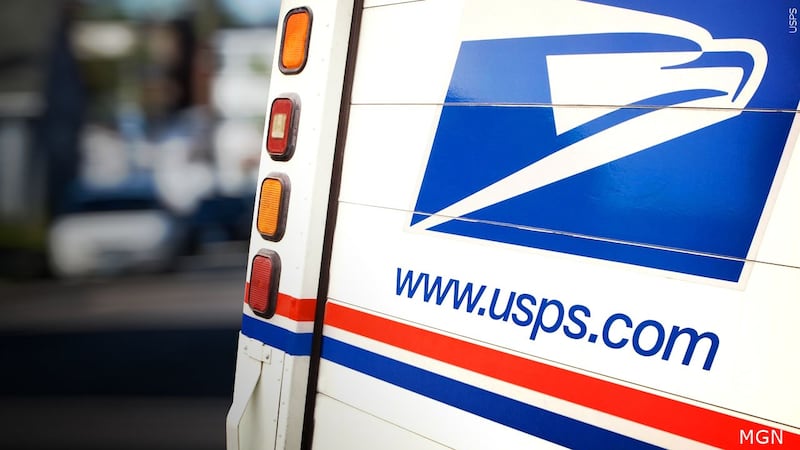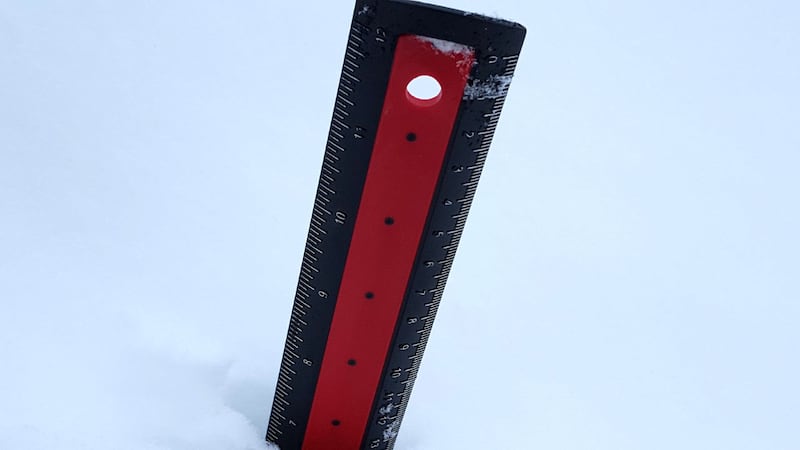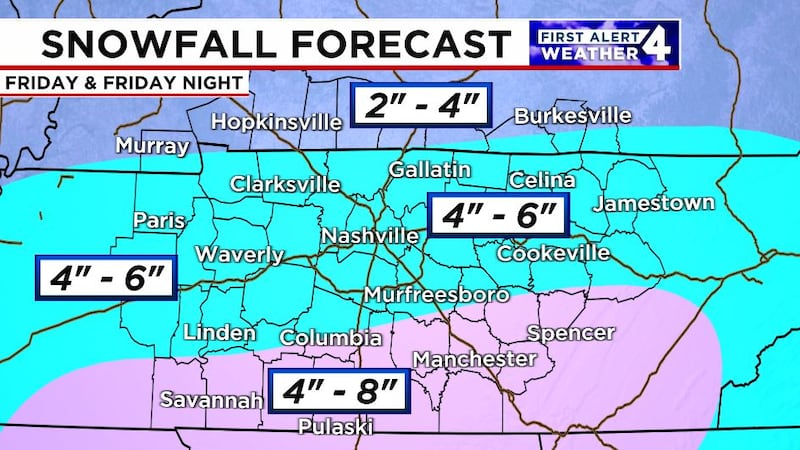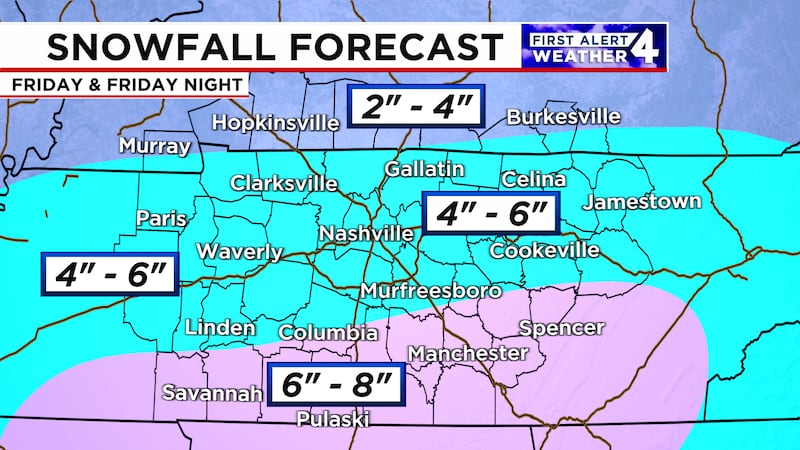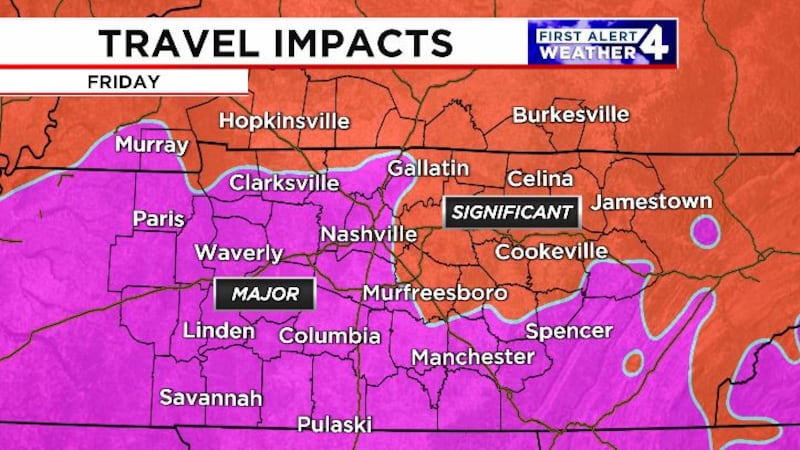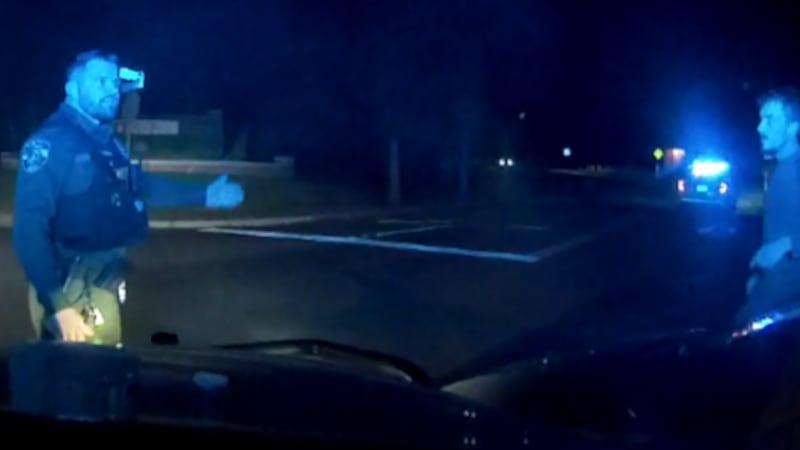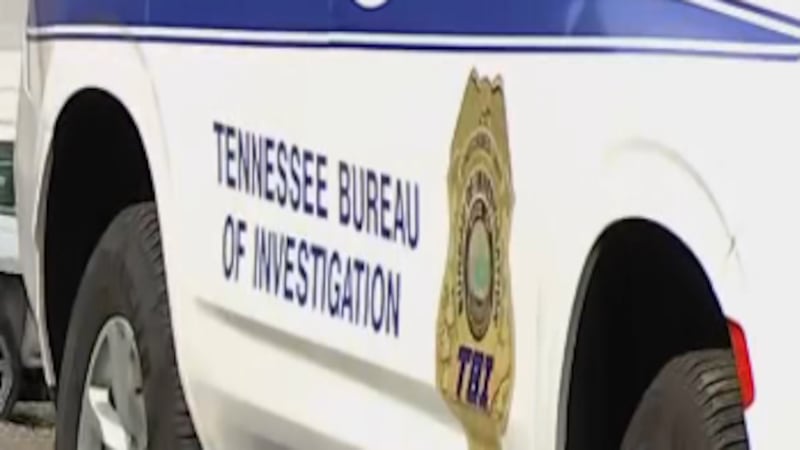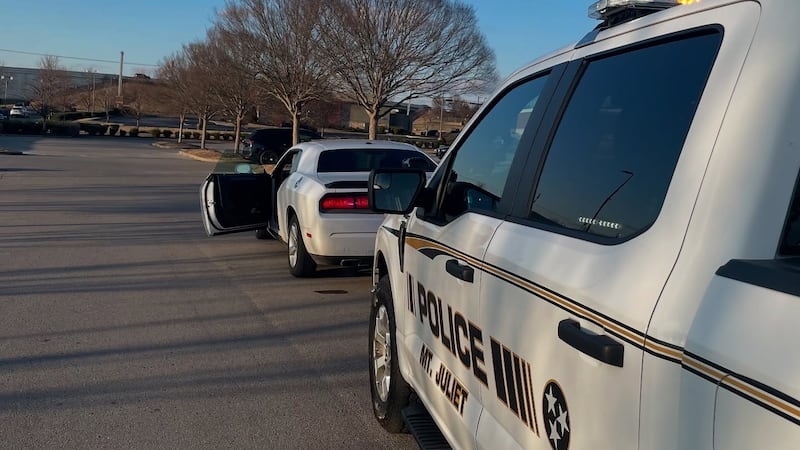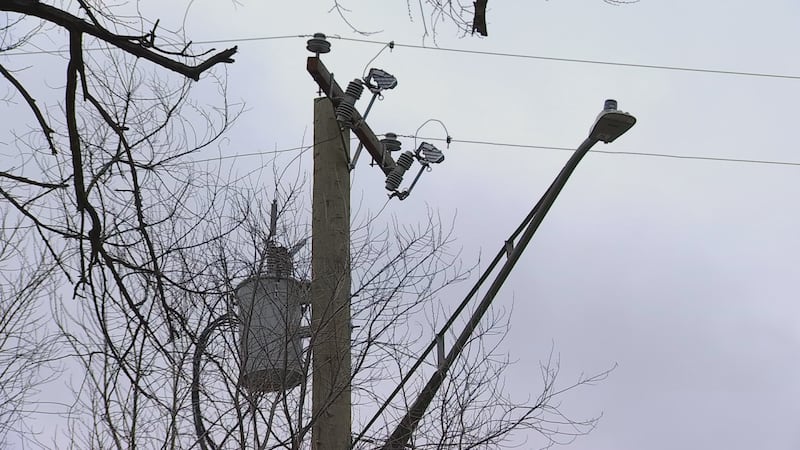4 class action lawsuits filed against garages/parking lots using cameras to identify license plates
Claims in three class action lawsuits mirror reporting from WSMV4 Investigates.
NASHVILLE, Tenn. (WSMV) - Jared Hill found out how much eight minutes and two seconds could cost you.
On Nov. 15, he and his wife were eager to get to their dinner reservation in the Gulch and paid to park for two hours at the Premium garage at 1000 Division Street.
Like parking lots around the city, the garage uses cameras to identify license plates to track how long a vehicle remains parked.
After dinner, they ran into a friend and ended up talking, returning to their car and driving away.
Days later, he received a parking invoice in the mail, reading that because he parked in the garage for eight minutes and two seconds over the allotted time he’d paid for, the fines and fees he incurred could be $100 if he paid after a certain date.
If he paid before that date, those eight minutes and two seconds would only cost him $75.
“Shocked. $25 parking fee? $50 invoice fee, not really sure what that is. And then the $25-dollar late fee if you didn’t pay it in a short amount of time,” Hill told WSMV4 Investigates.
Hill is the latest frustrated driver to come to WSMV4 Investigates with complaints about parking lots and garages in Nashville that use cameras to identify people’s license plates.
A series of WSMV4 Investigations found numerous complaints from individuals who received high fines after attempting to pay with the company’s app or simply driving through parking lots.
Even the mayor of Nashville got a bogus ticket, and the Tennessee Attorney General reports they’ve received nearly 200 complaints about lots owned by the company Metropolis.
Four class action lawsuits have been filed this year, one in Texas, another in California, and two in Tennessee.
Three of the lawsuits are suing Metropolis, while the 4th is aimed at Premium.
The language in the lawsuits against Metropolis mirrors complaints from drivers made to WSMV4 Investigates.
One of the lawsuits claims, “Metropolis created systems that are designed to intentionally confuse, deceive, and charge unauthorized fines and fees to extract more revenue from consumers.”
The Lanier Law Firm in Houston Texas, features a video on their website of their attorney, Alex Brown, accusing metropolis’s system of extortion.
“It’s actually designed to extort extra fees, beyond your parking fee. One of our clients was charged 1,000 percent more than their parking fee,” Brown said in the video.
A spokesman for Metropolis denied our request for an interview, but sent a statement reading in part, “The assertion in these lawsuits that we intentionally deceive consumers is categorically false, and we have filed motions to dismiss these suits.”
The statement goes on to read, “Additionally, as we have grown, we have listened to our customers and evolved our policies, including substantially decreasing late fees and booting only when appropriate and in accordance with applicable laws.”
The assertion in these lawsuits that we intentionally deceive consumers is categorically false, and we have filed motions to dismiss these suits. These kinds of lawsuits have long targeted the parking industry, and we are far from the only operator who has had to deal with these frivolous lawsuits over the years.
Like many class actions suits, these months-old lawsuits in question are simply the latest attempts to try to force a company to pay for violations they did not commit. To be clear, none of these lawsuits dispute that they failed to pay for a parking session. They parked in a private parking facility with signage stating they need to pay and they failed to do so. We are confident they will be dismissed.
The vast majority of our customers have had and continue to have excellent experiences and find our technology seamless. That is evidenced by the tens of thousands of five-star reviews we’ve received as well as an A+ rating from the Better Business Bureau.
We take our members’ privacy very seriously and act in accordance with DPPA laws and regulations. We also have taken a number of steps to enhance our customer experience, including offering 24/7 customer support where anyone with questions or concerns about a charge can rapidly access troubleshooting help by reaching out to help@metropolis.io
Additionally, as we have grown, we have listened to our customers and evolved our policies, including substantially decreasing late fees and booting only when appropriate and in accordance with applicable laws.
In the lawsuit against Premium, the company is accused of violating the driver’s privacy protection act, by using cameras to find driver’s home addresses in order to send the fines.
A spokesman for Premium also sent a statement, stating that any questions about drivers’ privacy should be directed to Municipal Parking Services, a company that handles Premium’s invoices.
WSMV4 Investigates reached out to Municipal Parking Services twice but has not yet heard back.
Like many others have done, Hill appealed his fine and ultimately got it removed.
“I’m very much against this, so I’m willing to fight it,” Hill said.
In their statement to WSMV4 Investigates, a Premium spokesman wrote in part, “In the case of Mr. Hill, the process worked exactly as it’s designed to. At the beginning of his parking session, the system sent him a text that included an overview of the transaction, a reminder of when his session expired, and a link for extending the session. 15 minutes prior to the expiration of his parking session, the system sent him another reminder that the session was expiring, and to add additional time to the session, if necessary. As Mr. Hill stayed passed the length of his parking session, he was sent a parking invoice in the mail by our partner, Municipal Parking Services. As you noted, Mr. Hill disputed the parking invoice due to the time overspent, and our team agreed and waived the invoice.”
“At Premium Parking, we believe in building a culture of compliance. Our goal is that everyone pay for parking appropriately. Every parking facility that’s managed by Premium Parking has an abundance of signage explaining how to pay for parking and what to do if a parking session expires before the driver is ready to return. We also send reminders to our parkers about when their parking session is set to expire, and how to add additional time, if necessary. If a parker chooses to not pay for their parking session, or to not pay for the additional time, they are sent a parking invoice via the mail or placed on their windshield. For those who believe they were invoiced inappropriately, we offer a US-based 24/7 Customer Support line and an extensive dispute process.
“In the case of Mr. Hill, the process worked exactly as it’s designed to. At the beginning of his parking session, the system sent him a text that included an overview of the transaction, a reminder of when his session expired, and a link for extending the session. 15 minutes prior to the expiration of his parking session, the system sent him another reminder that the session was expiring, and to add additional time to the session, if necessary.
As Mr. Hill stayed passed the length of his parking session, he was sent a parking invoice in the mail by our partner, Municipal Parking Services. As you noted, Mr. Hill disputed the parking invoice due to the time overspent, and our team agreed and waived the invoice.
All questions and concerns regarding the DPPA should be directed to our partner, Municipal Parking Services, as they provide the service of in-mail invoices on our behalf.”
If there’s anything you’d like us to know about this story or anything else, please email Jeremy.finley@wsmv.com.
Copyright 2024 WSMV. All rights reserved.
